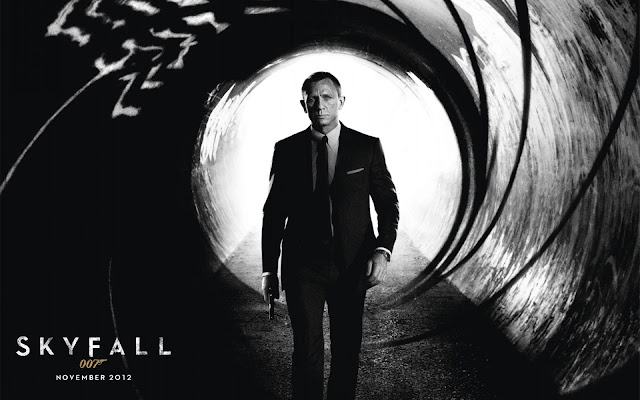Contrary to expectation, Skyfall’s plot is not a continuation of the one-two punch of Daniel Craig’s previous entries (the superior Casino Royale and its direct sequel, the flashy, yet underwhelming, Quantum of Solace). Throwing the established plot threads to the wayside, Skyfall opens with an almighty bang. In one of the franchise’s most dynamic action sequences, we see James Bond (Daniel Craig) at his most tenacious. Tearing through the streets of Istanbul, Bond utilises four different modes of transport in an exhaustive chase to recover a disk that contains all the identities of NATO’s undercover agents. After failing to obtain the disk and becoming aware of expendability, Bond opts for a low-key existence. But when a crazed madman (Javier Bardiem) starts targeting MI6 and its leader, M (Judi Dench), a shaky Bond decides to re-enter the game – but can he overcome the physical and emotional injuries he has accrued over time?
The question with Skyfall — the 23rd official entry in Ian Fleming’s spy franchise — is not simply is it any good? (of which the answer is an emphatic ‘yes’) but rather, is this the best film in the franchise’s fifty year history? For myself, the answer is a yes, but this may not be the case for everyone. See, James Bond is many things to many people. Though it often quickens the pulse, Skyfall is no cinematic energy drink. Gone are the empty calories of invisible cars and crocodile-shaped submarines. Instead, Skyfall falls into the mould of recent blockbusters and gives us meaty themes and a dour tone. While its seriousness is a definitive, modern feature, Skyfall never forgets to include the elements that made Bond so popular in the first place: stunning locations, a slimy villain, gorgeous women, hair-raising stunts and a masculine protagonist. This balancing act between the old and the new is what elevates Skyfall to the front of the pack. Not only is it a great modern blockbuster, it’s a great James Bond film.
The name is Boss, Mega Boss’
Contrary to expectation, Skyfall’s plot is not a continuation of the one-two punch of Daniel Craig’s previous entries (the superior Casino Royale and its direct sequel, the flashy, yet underwhelming, Quantum of Solace). Throwing the established plot threads to the wayside, Skyfall opens with an almighty bang. In one of the franchise’s most dynamic action sequences, we see James Bond (Daniel Craig) at his most tenacious. Tearing through the streets of Istanbul, Bond utilises four different modes of transport in an exhaustive chase to recover a disk that contains all the identities of NATO’s undercover agents. After failing to obtain the disk and becoming aware of expendability, Bond opts for a low-key existence. But when a crazed madman (Javier Bardiem) starts targeting MI6 and its leader, M (Judi Dench), a shaky Bond decides to re-enter the game – but can he overcome the physical and emotional injuries he has accrued over time?
Right off the bat: I’m not the biggest James Bond fan. I completely understand the escapist appeal of Ian Fleming’s creation, but Bond wasn’t my boyhood indulgence. I would far rather watch a violent sci-fi film (The Terminator, Predator, Aliens and Robocop) than a womanising Brit with a magnetic watch. I’d tag along with my friends to see every new entry, but few of them set my world on fire (except, perhaps, 1995’s Goldeneye). It wasn’t until Daniel Craig donned the tuxedo in 2006’s Casino Royale that Bond really entered my geek radar. I was a fan of Craig’s work and I wanted to see Bond reinvented for a more serious cinematic age and, like most, I was thrilled with the end result. Skyfall has a similar cinematic draw for me: I’m more interested in seeing what director Sam Mendes can achieve in a blockbuster framework than the ongoing struggles of agent 007. But Skyfall’s biggest success is its ability to emotionally rise above its technical superiority. Not only was I impressed with Skyfall’s superlative production values (which I expected), but it also pulled me in with its vivid character work and increasingly personal stakes – there is true substance with Skyfall’s substantial style.


No comments:
Post a Comment